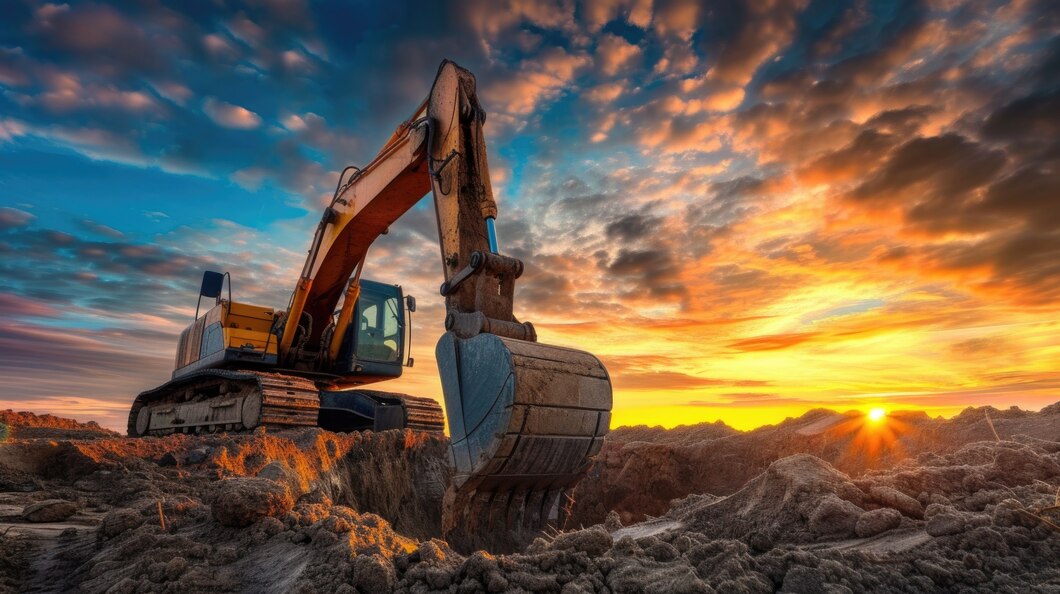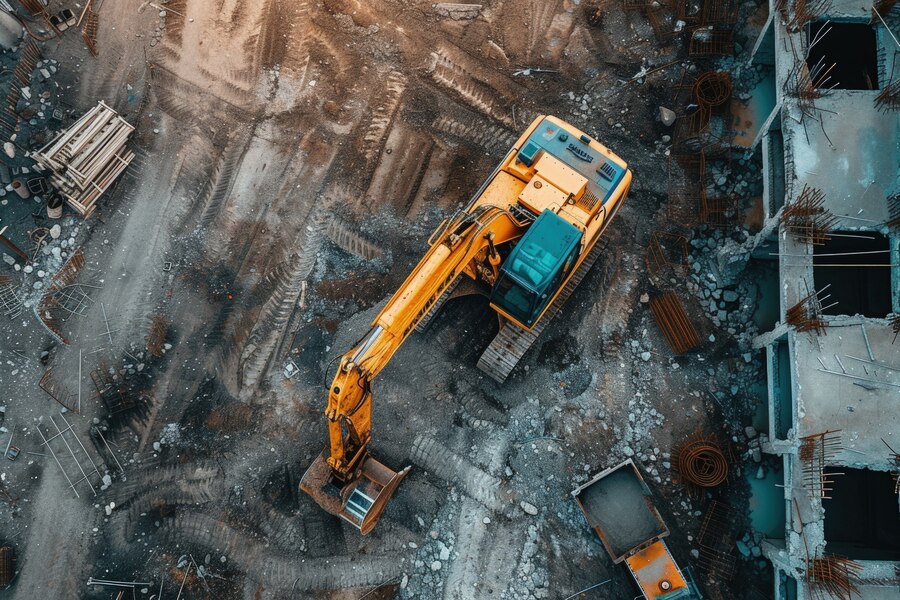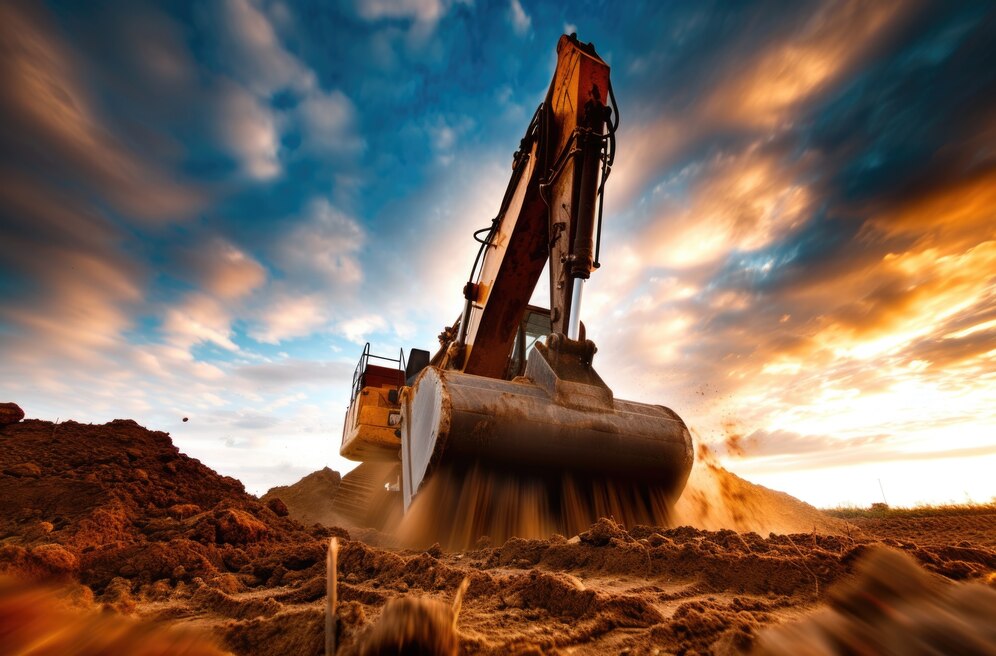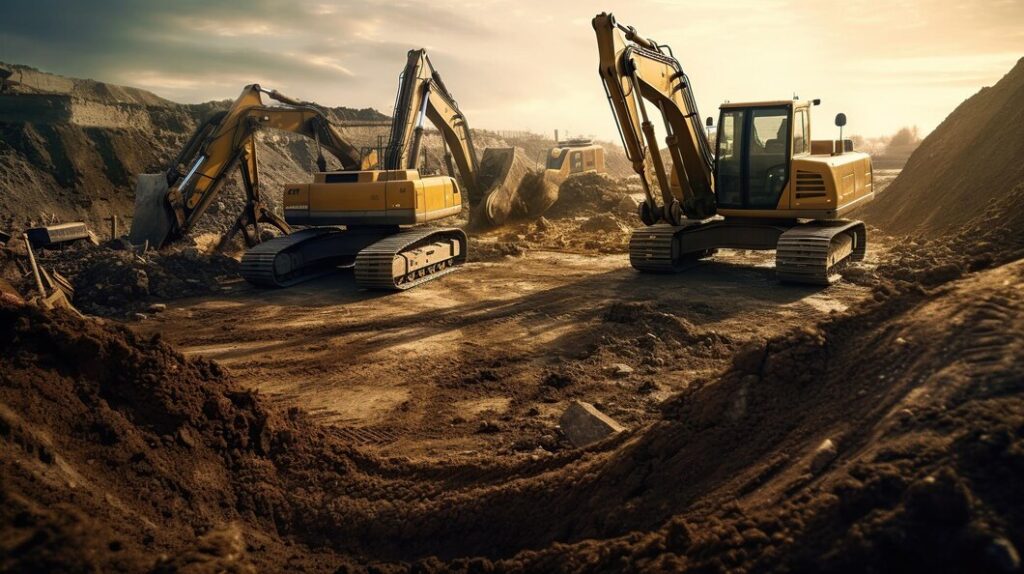How To Choose The Right Excavator For Your Construction Project
by Ankita Tripathy Real Estate 30 April 2024

Excavators are very flexible and important machines in the construction field. They can do various tasks, from making ditches and bases to lifting heavy things or taking apart structures.
Yet, picking the correct excavator for your building project isn’t always easy when many models of this machine exist on market shelves.
This article looks into vital elements that need to be thought about when choosing an excavator type, so it performs best at workplaces with the highest effectiveness and productivity possible.
Assessing Project Requirements And Scope

For you to think about investing in an excavator, it’s very important to evaluate the particular needs and size of your construction project.
You might find it helpful taking into account aspects like how big and deep the excavation is, what kind of soil there is along with any limitations on access as well as materials that will be handled.
If you comprehend the special demands of your project, this can help you decrease choices and select an excavator that suits well for your requirements while also enhancing productivity.
Matching Excavator Size To Project Scale
Excavators are made in various sizes, starting with compact mini excavators and going up to big hydraulic ones. Every type has its purpose and suits different project scales or applications.
For projects that are smaller in size or for work areas that have limitations, like building homes or doing landscaping jobs at someone’s house, maybe a compact/mini excavator is better because it can move easily and be used for many things.
In bigger projects such as commercial buildings being built or roadwork happening on the highway, a full-size hydraulic excavator might be needed to perform more demanding digging and lifting duties because it has greater power and capacity.
Exploring Financing Options And Excavator Sales
Lastly, think about how you will finance your purchase or lease. Look for different excavator sales and leasing programs to find a deal that fits your money and requirements.
Lots of dealers give flexible financing choices like equipment leasing, rental purchase agreements, or funding plans with good interest rates and terms.
By comparing the financing options available to you and bargaining with dealers, it is possible for you to get an excavator for sale meeting your requirements while staying within the limits of budgetary constraints.
Related: Acres and Miles: Benefits of Investing in Quality Construction Equipment
Considering Attachment Compatibility And Versatility

Attachments for Excavator: When your excavators come with attachments it’s greatly beneficial for you. These attachments can help you do more jobs along with excavation lands.
Your excavator’s flexibility also increases if there are attachments available that fit different jobs. Think about what kind of attachments you might need for your project, like buckets, hydraulic hammers, grapples, or augers, and check if the chosen excavator has room to hold these items.
Find an excavator with quick coupler systems which makes it easy to change attachments quickly; this lets you switch between various tasks smoothly without wasting time in between.
Assessing Operating Environment And Terrain
Site Operating Environment and Terrain: Factors such as ground conditions, slope gradients, and access restrictions are important for picking the right excavator for your construction site.
For rough or uneven terrain, tracked excavators provide more stability and traction compared to models with wheels. In situations where space is tight or confined, zero-tail swing excavators are better because they can navigate better within narrow work areas.
Evaluating Fuel Efficiency And Operating Costs
Choosing an excavator means prioritizing fuel efficiency, as fuel costs significantly impact overall construction expenses. Look for models with advanced engines and fuel-saving features like eco modes or automatic shut-off.
This can reduce fuel consumption and operational costs over time. Additionally, consider maintenance frequency, service intervals, and warranty coverage to ensure long-term affordability among the excavators on offer.
What Size Excavator Do I Need?

If you want to know the answer to ‘What size excavator do I need?’ You need to specify your purpose.
Here are seven types of excavators based on their uses for you.
1. Standard Excavators
Suppose you want to do any heavy-duty excavating like farming, construction, mining, etc. You can then use this excavator to dig a large area of land.
2. Backhoe Excavators
Backhoe excavators are used when you need to dig more earth at once. The attachment in front of this excavator can excavate and remove load at the same time. So, if you want to dig land faster while removing earth or stones, simultaneously, this is the one for you.
3. Hydraulic Shovels
If you need an advanced excavator with an intense singing process like mining or doing heavy-duty tasks, then opt for the hydraulic shovels. These excavators use the hydro excavation process to dig large areas of land while lifting heavy materials.
From digging up minerals to hard boulders these hydraulic shovels are perfect for any heavy-duty excavation.
4. Suction Excavators
You will need a suction excavator to remove loose soil from your construction site after using standard or wheeled excavators. Of course, you can hire laborers to remove all the stones and boulders from the land but that’s time-consuming. It is also quite costly to hire laborers to remove dug earth.
5. Dragline Excavators
Are you in the shipping industry or shipping manufacturing industry? Then this excavator is perfect for you. Dragline excavators are also used when you are canal dredging or strip mining.
6. Long-Reach Excavators
Are you excavating large areas of land like 100 feet or more? You will need long-reach excavators for this type of large excavation.
If you are excavating large areas up to 100 feet, choose the long-reach excavators. If you are doing demolition jobs then these excavators will be a great choice for you.
7. Wheeled Excavators
You would need wheeled excavators if you are excavating lands in urban areas. These excavators are the same as standard excavators but just run on wheels. The only difference between these excavators is that they are perfect for excavating rough terrains.
So, if your landscape is rough with loads of stones or boulders then choose these excavators. Keep in mind that wheeled excavators are not great for sloppy or hilly terrain.
Frequently Asked Questions About Excavators
You might be interested to know more about the queries you searched for ‘What size excavator do I need?’ So here are some frequently asked questions about this particular query made by many others on the internet. Some of these questions might be exactly what you are looking for.
What size excavator do I need?
To answer your question ‘What size excavator do I need?’ You need to know the purpose of the excavator. Your land size and depth a major factors when choosing an excavator.
You might need an excavator for mining and lifting heavy rocks or minerals at the same time. Then you would need hydraulic shovels with dragline excavators.
If you are digging a large area of land then you might need the standard excavator.
But if you are going to dig a rough landscape which is uneven you might want to consider a wheeled excavator.
Which size excavator do I need to demolish a house?
Opt for a long-reach excavator or wheeled excavator to demolish a house.
What size excavator do I need to dig a basement?
You would need a standard or wheeled excavator to dig a basement. To be specific you would need 3 to 5-ton excavators for digging basements in houses.
Which size excavator do I need to remove stumps?
You would need a standard Midi excavator weighing 6 to 10 tons to remove a stump. Not only that you can also use wheeled excavators to dig out stumps.
What size excavator do you need to remove trees?
You would need a standard medium excavator weighing 10 tons or more to remove trees.
Conclusion
Choosing the right excavator for your construction project involves considering factors such as project requirements, machine size, attachment compatibility, and environmental factors like fuel consumption or brand reputation.
Consider payment options and the supplier’s industry standing. By evaluating needs and options, you’ll find an excavator that ensures top performance and efficiency on-site while contributing to the timely completion of your project.
Read Also:







































































































